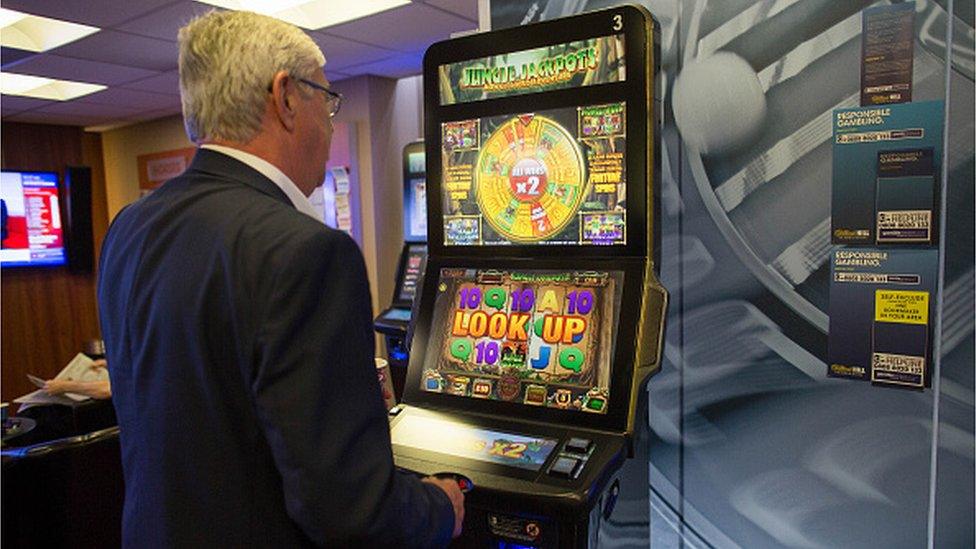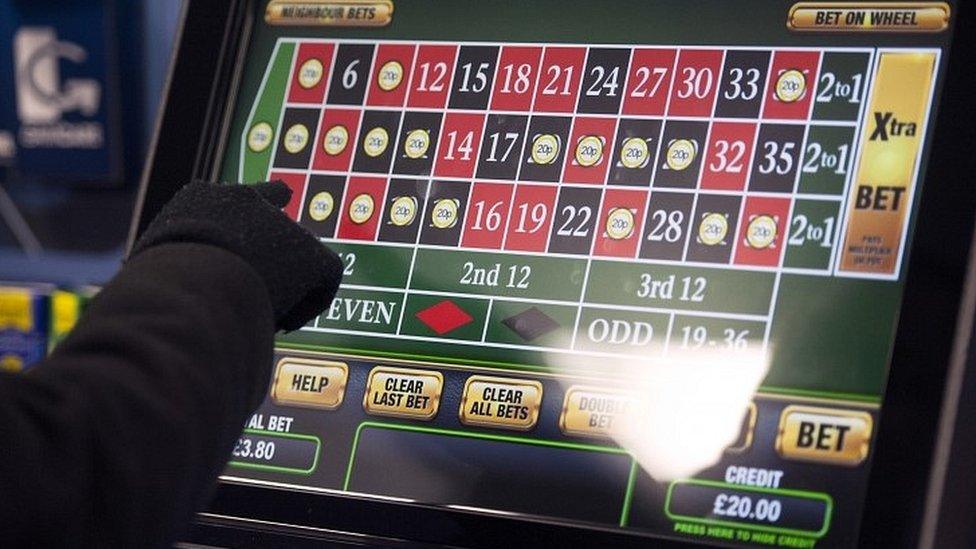MPs recommend clampdown on fixed-odds betting machines
- Published

A cross-party group of MPs has said maximum stakes on fixed-odds betting terminals should be cut from £100 to £2 to reduce "societal harm".
The MPs also called on the government to bring in rules to slow down the speed at which the machines operate.
Bookmakers should employ more staff to help reduce crime linked to the terminals, they added.
But industry body the Association of British Bookmakers said the group of MPs was "a kangaroo court".
Shares in William Hill fell more than 7% and Ladbrokes Coral shares fell more than 6% after the MPs' announcement.
Fixed-odds betting terminals (FOBTs) are gambling machines, normally located on bookmakers' premises, where players can stake large amounts of money on games such as roulette.
Given the potential for big losses due to the maximum £100 stakes and the speed of spin on the terminals, the government should take immediate action, said Labour MP Carolyn Harris.
"The government has a duty to protect the most vulnerable in our society and to act in the public interest.
"We therefore strongly urge them to properly regulate FOBTs and to do so with immediate effect," she said.
The all-party parliamentary group on fixed-odds betting terminals, which Ms Harris chairs, said it had received reports of increased crime due to the presence of the machines in bookmakers.
The government should consider not just "problem gambling" but also "wider gambling-related harm caused by FOBTs and the cumulative impact on families and communities that these machines can have".
'No material evidence'
However, the Association of British Bookmakers (ABB) described the group of MPs as "a kangaroo court".
"It is a small group of anti-bookmaking MPs, funded by casinos and arcades that will benefit from undermining bookmakers," an ABB spokesman said.
"When a properly balanced and independent Select Committee of MPs investigated FOBTs, they came out strongly in favour of them.
"As opposed to that Select Committee report, this is a biased and highly misleading piece of work, with no material evidence to support their claims."
The Department for Culture, Media and Sport is in the process of reviewing fixed-odds gambling machines.
- Published24 October 2016
